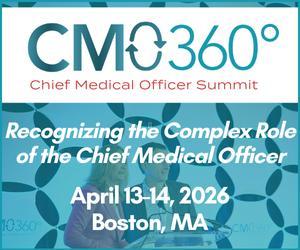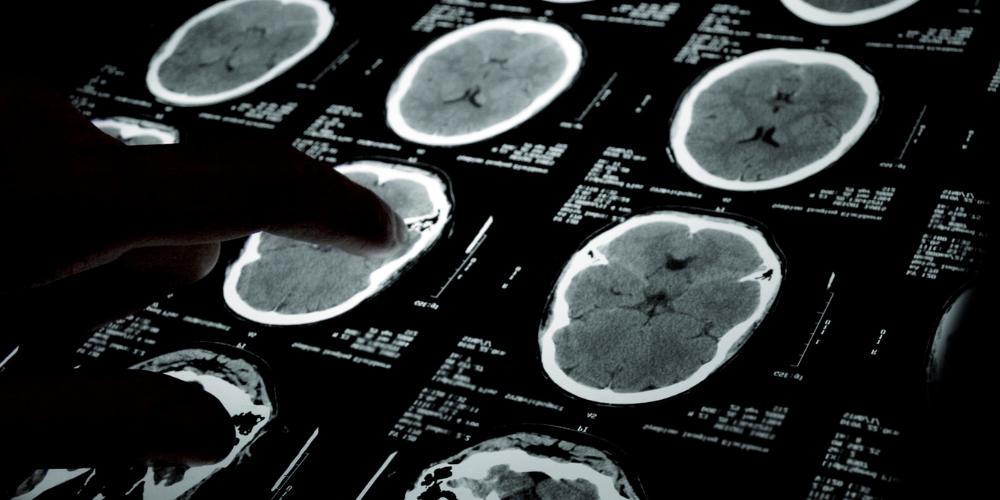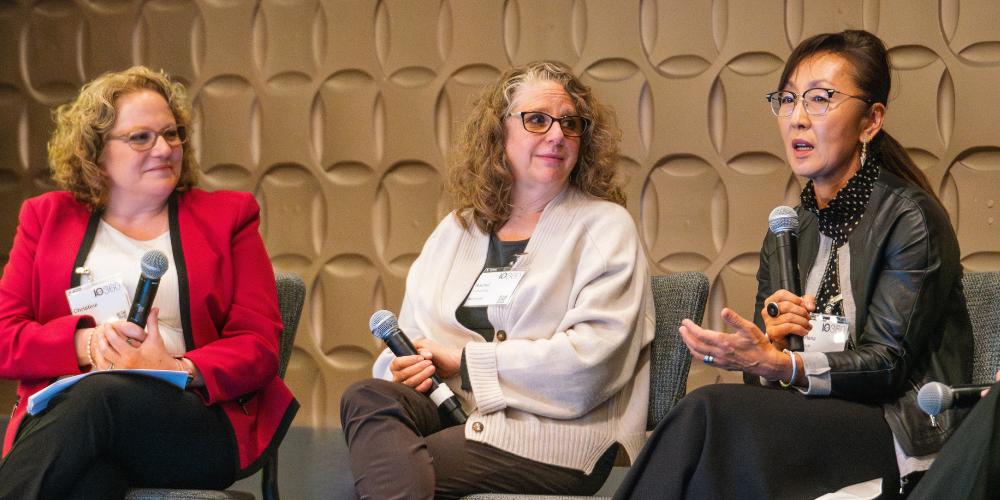The Current State of the IO Fundraising Landscape from a Long-Time Biotech Investor
Dr Deepa Pakianathan has been in biotech VC for more than twenty years, having seen multiple cycles of biotech boom-and-bust. She gives us her assessment of the IO landscape, her best advice for capital raising and her insight based on how her past experiences with CEOs have informed her approach as a new CEO.

What are the trends that we are seeing in IO biotech?
IO is particularly out of favor right now and is very hard to raise money for. When you're looking for investor money, early signs of efficacy are necessary. With IO, that's been difficult. You don't see early signs of efficacy as a single agent. That makes the development process more difficult and less attractive to investors.
To what do you attribute that more negative attitude towards IO?
We have seen a real dearth of positive clinical data recently. The yardsticks are pembrolizumab and nivolumab. I'm not sure we're ever going to see another IO therapy with that level or breadth of efficacy. The immune system is just not built that way.
The plasticity of the immune system is vital, otherwise we, humans, wouldn't have survived for as long as we have. Because the immune system is built to evolve, it can't underperform or overperform. When it overperforms, you end up with an autoimmune disease. With IO therapy, removing a brake resulted in extreme side effects, like cytokine release syndrome, before we knew how to optimize doseing. We are getting better at dose finding, but we are not quite there yet.
Are other areas of oncology doing better or is the negative attitude across the board?
Right now, I would say the modalities that are in favor are ADCs, radiotherapy, and small molecule / precision medicine approaches targeting particular mutations of oncogenic proteins.
Why do you think there is greater interest in something like radiotherapy?
It's a different kind of discovery science. In IO therapy, you're discovering new targets, whereas with radiotherapy, you're building a better molecule. We continue to learn about how to optimize radioactive payloads.
In radiopharmaceuticals, we started off with payloads that were difficult to manage, a supply chain that was unacceptable, uninterested hospitals, etc. Those supply chain issues hampered their use, despite having drugs in the first generation of radiotherapies that cured patients.
Some of those issues still exist with the newer generation of payloads. However, there has been a bit of a renaissance due to several large acquisitions in the space. Any time you have acquisitions, you drive more investor money into those types of companies.
What should people know about ADCs, their current capabilities and future potential?
ADCs have been around for a long time and have more recently become a popular modality to treat various types of cancer. We've expanded to new classes of payloads, which are in essence cytotoxic agents. In some cases, they don't necessarily have single-agent activity or a therapeutic index on their own. When conjugated to an antibody, they bring more efficacy while decreasing the toxicity, or at least that is the hope. We've made advancements, but there's still much room for improvement.
How could ADCs best combine with IO therapy?
We are starting to see combination therapies combining ADCs with IO drugs like pembrolizumab and nivolumab. The early data is promising, but it's still early data.
What I've been looking for is synergy, not additivity. From the data we've seen so far, I have yet to witness whether or not we're truly going to see synergy by combining IO and ADCs. However, I'm hopeful because the combinations of IO drugs with chemotherapy have worked far better than anybody had ever hoped they would. ADCs bring similar properties, but in a more targeted way.
What has been our most significant understanding of the immune system in your view?
The immune system is a multitude of communication systems that are extremely well-tuned to each other, the outside world, and with every part of the body. Immunology is both a close and distant communication system within the body. It's the voice in your head along with a one-on-one conversation, a cell phone, a satellite phone, and an underwater cable.
Your immune system is constantly interacting with any cells that are on the verge of becoming cancerous, and I would guess that your immune system is getting rid of a lot of them. It's the ones that escape immune surveillance that are likely to become tumors. It is a constant, evolutionary battle.
Anybody who says that they completely understand immunology is not being honest with themselves. Our knowledge is limited by the systems that we use. If there isn’t a basic understanding, I'm not sure how you create an in silico model. The inputs might be narrowly correct, but they're not broadly correct. They're missing too many pieces of information.
Are there any areas of research that you view as potentially impactful?
There are various ways that a tumor cell can mask itself from the immune system and I'm not sure we've plumbed the depths yet. We are very focused on protein targets, but there are also glycans and lipids on the cell surface. Tumors shield themselves from the immune system using different glycan signatures, evidenced in the work of Dr Caroyln Bertozzi with the sialic acids that bind to siglecs. I remain very excited about the potential for those types of approaches.
What do you hope biotechs learn from this moment in a more difficult environment?
To continue scientific advancements. We still have a lot of unmet medical needs. My career has primarily been focused on how we can make better drugs for patients, improving both efficacy and tolerability. I've experienced firsthand what a difference a medication can have on your life. That’s what I want to continue doing with the work I’m leading.
What would be your advice for biotechs looking to raise capital right now?
- Make sure you have the right team in place.
- Be very critical about your science, and do the right experiments to kill programs as early as possible.
- Ensure that you have the right capabilities around the table and a good team of people who work well together.
- Raise as little money as possible.
Raise as little money as possible?
In the last few years, some companies have raised mega-rounds, which is just too much money. When you raise too much money, you make very bad decisions. You sign a lease to a shiny new building, have lunch catered every day, travel to every conference you’re invited to, and hire too many people. When you do that, you don’t have the ability to control every experiment and decision.
What is the right amount of money to raise?
Raise enough money to build real value into your program. If you’re a discovery-stage company, you should not raise money to perform Phase III clinical studies. If you’re discovery-phase, raise enough to figure out if the science works and if you have a development candidate. Once you have a development candidate, raise enough money to get clinical proof of concept data.
In oncology, it used to be that you spent very little and did as little work as possible in Phase I. Now, you must spend more and do proper dose-finding work early on in order to set yourself up for Phase II/III. That is when things get expensive. If you did the right work up front, you don’t need to spend as much as you would have if you went straight into Phase III with little Phase I data.
How have your past experiences with CEOs of biotechs influenced your own approach as a biotech CEO?
I’ve learned to work with the best people possible, who I trust scientifically, who know what they’re doing, and who get along with each other. It's all about doing the right experiments to figure out if the program is viable before you've invested too much capital.
You need a good combination of people, science and capabilities. When you have those three, along with adequate funding, that's when the magic happens.
What advice or lessons have guided your career?
I have no specific advice, but there were several people along the way who’ve been extremely helpful. You learn from everybody you talk to. I have found that people can be very generous with their time, help, advice, and connections, and now it is time for me to pay it forward.
What advice would you give young people, particularly young women, to build successful careers in science?
Being scientifically curious has served me well. I didn’t stay in my lane. I learned as much as I could about whatever I could, whenever I could.
That can be done multiple ways. For some, it’s via the internet. For me, it was going to medical conferences and learning from others. Learning from others ensures that you understand both what to do and what not to do.
Book recommendation:











